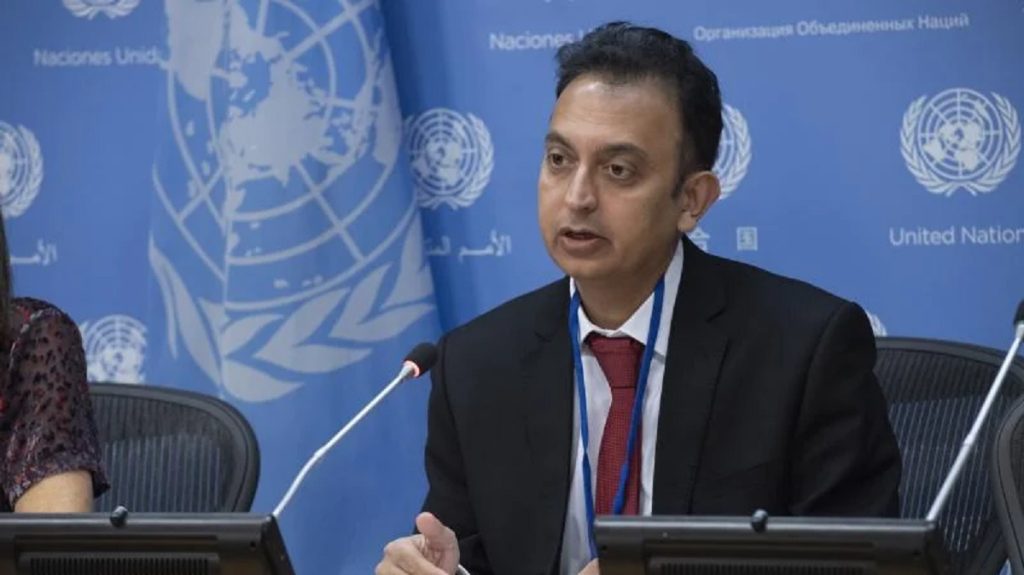On Monday, October 25, 2021, Javaid Rehman, the U.N. Special Rapporteur on human rights in Iran, expressed concern over the increasing human rights violations in Iran during United Nations General Assembly’s Third Committee.
“A serious impediment for improvement consists of persistent impunity for serious violations of human rights law. The situation is aggravated by the fact that individuals who face allegations of being involved in the commission of serious human rights violations remain in powerful positions, including at the highest level of public office,” said Dr. Rehman, while adding: “The Presidential elections in June this year clearly highlighted this point.” He also raised his concerns by saying that the basic prerequisites for political pluralism and free and fair elections do not exist in law or practice in Iran.
Dr. Rehman pointed out that: “Other factors contributing to impunity include the alarming level of intimidation or persecution of those who call for accountability. My Mandate notes with concern the high number of acts of reprisals undertaken by security and intelligence agencies against families of victims, human rights defenders, lawyers, journalists and others calling for accountability.”
About the issue of impunity of the Iranian authorities, Dr. Rehman said: “I remain deeply concerned about the lack of any progress or political will to conduct investigations, let alone ensure accountability, for serious human rights abuses in Iran. As I have described in my report, there is widespread and systemic impunity in the country for gross violations of human rights; both past instances of serious and substantial violations of human rights, including enforced disappearances and summary executions in 1988 as well as the recent cases, particularly the use of excessive and lethal force by state security forces during the November 2019 protests. There are no real avenues for accountability in line with international standards within domestic channels.”
At the end, he addressed the international community by saying: “I ask the international community to continue to urge for accountability for the serious human rights violations committed in Iran, but also to engage with the Iranian authorities to make the change necessary to prevent such violations to continue. These changes need to be introduced at structural levels in law as well as in policy. The efforts by the international community can be made both in international human rights mechanisms such as the Human Rights Council and in Member States’ dialogue with the government of Iran. Without the involvement of the international community, such grave violations will continue.”The Canadian delegation welcomed the Special Rapporteur’s report and said that despite some positive initiatives, most of the deficiencies previously raised remain and have gotten worse in some areas.
The representative of the Canadian delegation said: “We are concerned by the use of the death penalty, by restrictions on the right to freedom of thought, conscience, religion or belief. We are concerned by discrimination against women and members of ethnic and religious minorities. We are concerned by restrictions on human rights both online and offline, and with the lack of accountability and ongoing impunity in Iran for human rights violations. Canada remains alarmed by the systemic use of arbitrary arrests and detention, including the continued use of this practice to target dual and foreign nationals.”
He pointed out that: “Canada condemns the mass murder of political prisoners in Iran in 1988.”
“Canada spearheaded the Declaration Against Arbitrary Detention in State-to-State Relations, which now has more than 60 Member State endorsements. Mr. Special Rapporteur, how can the international community better engage to address ongoing concerns in around arbitrary arrests and detention?
We also share the concerns on the reported attempts by Iranian authorities to continue to destroy evidence of past violations, including mass, extrajudicial executions of political dissidents in 1988,” the representative of the Canadian delegation concluded.

